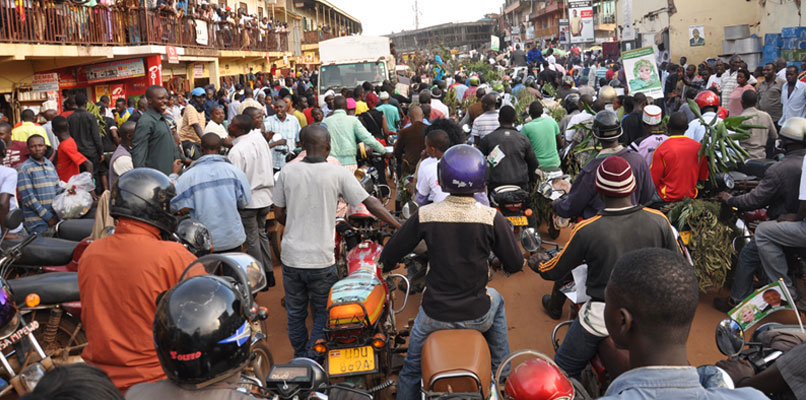Columnists
Genesis of the bodaboda English word
The intersection of the road from Kampala, to the one from Tororo towards Lumino by the Lake Victoria, is roughly at a 90 degree angle. On the right side before the intersection is the bus/taxi park that is the disembarking point for, even those passengers, heading to the border on their way to Kenya.
From that point, the road is an elevated gradient upwards, towards Kenya. It is difficult to walk it, especially when one has luggage to lug. It is like the gradient from Kiira Police Post towards Kabira Club; or the gradient from Entebbe Road junction at Shoprite to the Kampala-Entebbe junction, opposite the Housing Finance Bank.
Those going to Kenya have to contend with it; and previously there was scantly help for carrying luggage. Until the early 1970s, possibly the year 1970 itself, when the “boys” who used to help carry luggage physically to the border point for a fee, hit on the idea of tying the luggage to the carriers of bicycles; and these lessened the burden.
They would roll the bicycles as the owners of the luggage followed along, obviously with the distrust that they could not ride away while the owners walked; it was possible that they would easily have disappeared with the luggage, by any of the panya roads leading to Kenya side. Besides, they could not give lifts to the travelling owners at the same time.
The sales pitch/question these boys would ask the travelers willing to have them carry the luggage was, “Border?”. It was a repeated question/offer for them to carry the luggage for the traveler. The pronunciation of the word in English easily got tied up with the African phonetic, “Boda”.
And with the easy repetition, the term, “bodaboda”, was born.
Its meaning was an invitation for a traveler going to Kenya to have his goods carried on the carrier of the bicycle. Coming back from the Kenya side of the border was a sloping gradient. The “boys” would have an easy ride with the goods from that side; and the travelers would easily hire another bicycle to carry them alongside the riders who would lift their goods. Up to now, there are no other taxis doing this kind of work. And so, the bicycle taxi, as the bodaboda, was established.
For a good period of time, indeed up to the 1980s, this phenomenon of bicycle taxis persisted at the Busia border; but slowly other towns nearby copied this mode of transportation. Eventually, it spread to all the towns of Uganda; and it became more for ferrying passengers than for carrying goods.
This was before the Indian Bajaj motor cycles hit the market. Even when they were added to this as a mode of transportation, for some time, the word did not necessarily apply to them. With the cultural creeping of things, it is difficult to ascertain at what period the word and the reference to the motorcycles transitioned to them.
As the Oxford English dictionary has adopted this as an English word pertinent to the motor cycle mode of taxi service, it has conveniently forgotten, in its definition that, it started as a bicycle – and not – a motor cycle service; moreover carrying goods , and not people.
The traffic Police in Uganda will probably tell them – or possibly, to avoid embarrassment caused to them because they have failed to control them traffic-wise – that the bodabodas have become a menace to all and sundry. For parents with school-going children, who cannot afford better means of taking their children to school, this has become a cause of worry. These bodaboda riders pile up to five children on the pillion which is meant for one person. Even for adults, these pillions now mostly carry three people.
It is even worse with luggage. Recently, a bodaboda cyclist was photographed carrying a full-sized cow. It is common in the streets of Kampala for these cyclists to be ferrying piles of boxes, especially goods meant for shops. They have become more than the lone English word; they should now have a synonym as; “box-bodies”, in line with the Peugeot pick-up vehicles of the 1960s which were very useful for ferrying goods.
Comments














